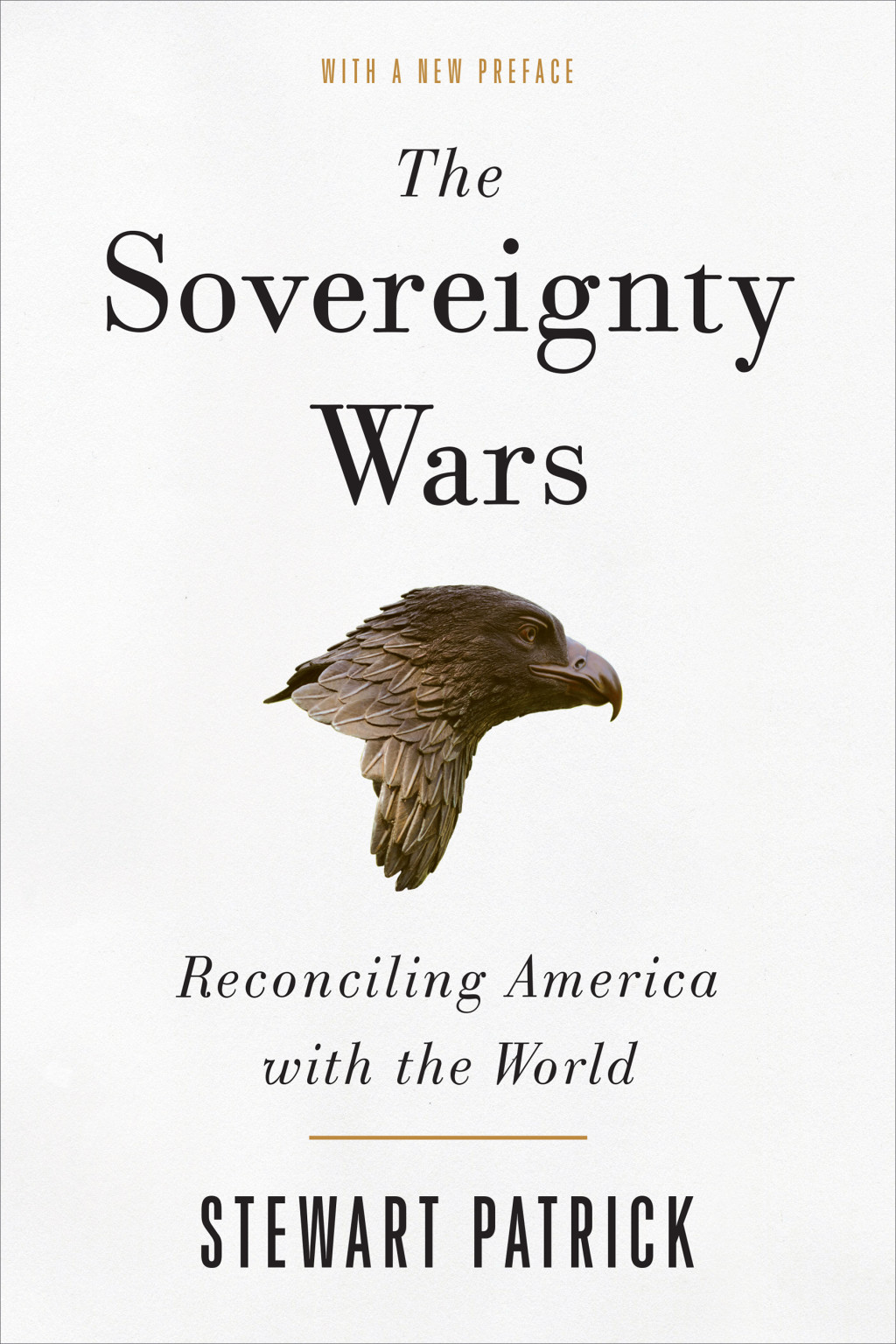The Sovereignty Wars
Reconciling America with the World
Stewart Patrick argues that the United States can protect its sovereignty while advancing American interests in a global age. He clarifies what is at stake in the sovereignty debate, arguing that the nation must make “sovereignty bargains” to achieve its aims in a complex world.

- Publisher
- Brookings Institution Press
- Release Date
- May 2019
- Pages
- 352
- ISBN
- 978-0-81-573781-0
In a new preface to the paperback edition, Stewart Patrick looks at the Trump administration’s pursuit of misguided policies over the past year (2018–2019) based on the mistaken idea that current trends in multilateral cooperation threaten American sovereignty.
Cogent and timely.
Foreign Affairs
When the United States withdrew from the Paris Climate Accord in June, President Donald J. Trump justified the move as a necessary reassertion of U.S. sovereignty. In The Sovereignty Wars: Reconciling America with the World, Council on Foreign Relations Senior Fellow Stewart Patrick challenges this kind of reasoning and asserts that international cooperation need not undermine sovereignty. “As transnational challenges grow, the nation’s fate becomes more closely tied to that of other countries, whose cooperation will be needed to exploit the shared opportunities and mitigate the common risks inherent in living on the same planet,” he argues.
Sovereignty is “one of the most frequently invoked, polemical, and misunderstood concepts in politics” observes Patrick, the James H. Binger senior fellow in global governance and director of the International Institutions and Global Governance program. He explains, “Often lost in these heated discussions is that sovereignty has at least three dimensions—authority, autonomy, and influence—and that advancing U.S. interests in a complex world sometimes requires difficult trade-offs among defending the U.S. Constitution, protecting U.S. freedom of action, and maximizing U.S. control over outcomes.”
Patrick urges the United States to consider striking “sovereignty bargains”—voluntarily trading off some autonomy, but only rarely authority—to gain influence and advance its interests on a variety of issues. He acknowledges that the trade-offs can be difficult but underscores that they are necessary for the United States to address global challenges such as arms control, nuclear proliferation, trade, border security, migration, terrorism, global pandemics, and climate change.
Intelligent and beautifully written.
G. John Ikenberry, Princeton University
“Today the best measure of effective sovereignty is not the absence of foreign entanglements, but indeed the extensiveness of a country’s links with the outside world,” writes Patrick. “It is not about steering clear of international attachments, but about steering global forces and events in a positive direction.”
“The United States cannot successfully manage globalization, much less insulate itself from cross-border threats, simply on its own,” writes Patrick. The United States’ decision to join an international organization or sign a treaty therefore “represents an expression and exercise of sovereignty, not its abdication.”
A Council on Foreign Relations Book
Educators: Access Teaching Notes for The Sovereignty Wars.
Reviews and Endorsements
The Sovereignty Wars is a compelling rejoinder to those who contend that a preoccupation with sovereignty will bolster America’s perch. It is also a sobering warning to those who believe that policymakers simply need to wait for the populist storm to pass.
Ali Wyne, The Bridge
Cogent and timely. . . . Cutting through the hyperbole and inflamed rhetoric that tends to surround this subject, [Stewart] Patrick argues that when the United States signs a treaty or ties itself to other countries, it is exercising its sovereign authority, not abdicating it.
G. John Ikenberry, Foreign Affairs
Stewart Patrick unpacks a complex subject in a short, clear book that could not be more timely. The stakes in the ‘sovereignty wars’ he describes are high and rising for the United States and the world.
Anne-Marie Slaughter, President and CEO, New America
With lucidity and verve, Stewart Patrick shows how the right-wing fixation with alleged threats to U.S. sovereignty—from the UN, foreign courts, human rights organizations and other demonic forces—has damaged rather than enhanced American power. I implore the nationalist crowd to overcome its resistance and read this book.
James Traub, columnist, Foreign Policy, and author of John Quincy Adams: Militant Spirit
Stewart Patrick has written a perfect Guide to the Perplexed that helps sort through the muddled arguments being thrown about today regarding perceived threats to American sovereignty and shows how international engagement often enhances rather than limits U.S. influence.
Frank Fukuyama, Olivier Nomellini Senior Fellow, Freeman Spogli Institute for International Studies, Stanford University
In this intelligent and beautifully written book, Stewart Patrick has brought into sharp focus the deep, tangled, and contested ideas of sovereignty that swirl beneath the surface in foreign policy debates about America’s role in the world. In illuminating the different meanings of sovereignty and the great historical struggles over them, The Sovereignty Wars provides the terms for new and enlightened thinking about America’s global engagement.
G. John Ikenberry, Albert G. Milbank Professor of Politics and International Affairs, Princeton University